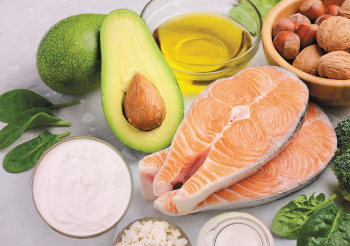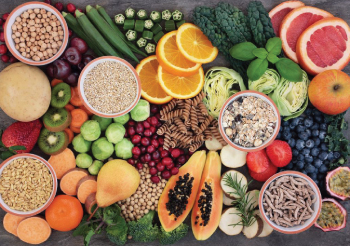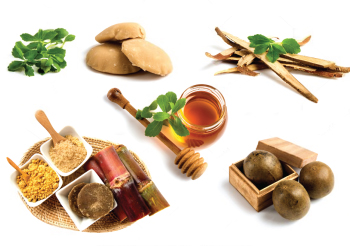Food
Diet constitutes an important and often overlooked aspect of recovery from breast cancer surgery. A healthy diet and important changes in the diet has the potential to aid in the recovery from breast cancer surgery and may even contribute to decreasing recurrence risk, if developed into a habit and life style change. The subject is vast and often controversial but a few tips can be safely incorporated and are discussed below.
Protein
Your body needs more protein than normal time to recover, fight infection and heal the wounds after breast cancer surgery. The protein intake is likely to fall short, especially immediately after surgery due to factors like post-op analgesia drugs, fatigue, etc.. The easiest short-term solution is to add commercially available protein powder to milk or water to supplement the diet, which may fall short of the need, other simple options are adding paneer, almonds, peanuts, daal or cheese if patient is vegetarian or eggs if non-vegetarian.

Dietary Fat
A low fat diet is a recommendation that can have short term as well as long-term benefits in breast cancer control and reducing recurrence. It is ideal to keep fat intake to approx. 30% of the total calorie intake. If such calculations seem too tedious then easier option is to avoid highly saturated foods like butter, margarine, ice cream and other such commercially available food. Try to eat more of baked and boiled food rather than fried food. Use of low-fat milk rather than full-cream is also an option. It is also advisable to decrease intake of food rich in trans fatty acids. Increasing intake of chicken, fish and daal also contributes to increase in omega-3-polyunsaturated fat. Decreasing fat intake and maintaining a healthy BMI will also contribute in decreasing recurrence risks. At the same time, it is important to get adequate amount of protein, calories and fat-soluble vitamins (vitamins A, D, E, and K), even if total fat intake has been decreased.

Fruits, Vegetables and Grains
These food groups are known to have antioxidants and other compounds that may contribute to cancer prevention. Every meal should be accompanied with a serving of fruits and vegetables. Food like broccoli, cauliflower, cabbage, Brussels sprouts are easily available and are rich in these phytochemicals. Unprocessed grains are high in fiber, minerals, and complex carbohydrates. A high fiber intake has a positive benefit on breast as well as many other cancers. Other foods like garlic, turmeric, soybeans, flax seed, basil, mint carrots are also known to be rich in these protective compounds and must be added to diet after breast cancer surgery.

Sugars
There has been a lot of interest lately in relation between sugars and cancer cell growth. However we still haven’t yet arrived at conclusive evidence that eating sugar will lead to cancer. However, a diet high in processed sugar will lead to higher BMI, obesity and will definitely contribute to cancer and recurrence. It is advisable to take complex carbohydrates, honey, jaggery, etc. instead of processed sugar.

Water
“Jal he jeevan hai”. It is an age-old adage but so apt for recovering from the stress of breast cancer surgery. Water intake is the component that is most simple to do but is often neglected. Adequate water helps flush out toxins and rehydrate the cells.

Alcohol
Alcohol intake definitely increases the risk of breast cancer. This effect has been seen with as little as few drinks a week and hence there is no amount that can be considered “safe”. It is best not to drink alcohol at all. For women who still do, it would be necessary to keep it no more than 1 drink a day to lower the risk of breast cancer.

